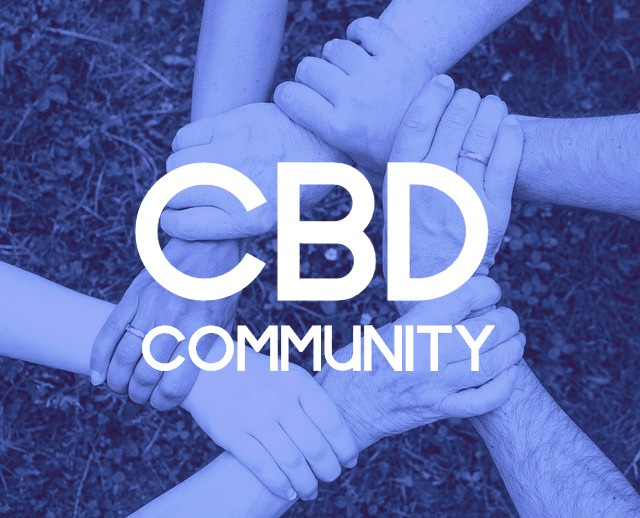Last updated on 20 August 2021
You have probably heard that antioxidants are good for your health. Why are people encouraged to eat foods that are rich in antioxidants? What exactly are these substances? What good do they do to the body?
Simply put, antioxidants are substances that inhibit oxidation hence reducing oxidative stress. Oxidation is the process by which waste is generated during body reactions. This process also leads to the creation of free radicals. The body produces some antioxidants, such as Glutathione and CoQ10, but these are not always enough to prevent the making of free radicals. This is especially true as one grows older, which is when oxidative stress increases significantly. This is why it is important to get enough antioxidants from other sources.
How Can Oxygen be Dangerous?
Oxygen is often synonymous with life, and rightly so. Therefore, one can understand why you might be baffled at the idea that oxygen could be dangerous to your health. Unfortunately, however, this can sometimes be the case.
Understanding how oxygen can endanger your well-being requires a little chemistry lesson. Oxygen is considered to be one of the most reactive substances. This has a lot to do with its atomic structure. An oxygen atom has six electrons in its outermost shell. To be stable, it needs to gain only two electrons, which explains why oxygen readily reacts with other elements, such as the equally reactive hydrogen.
What Are Free Radicals?
Antioxidants protect us from free radical damage. The body’s response to control the damage caused by free radicals is to produce antioxidants1. Oxygen is produced as a by-product in various chemical reactions within the body. Given its highly reactive nature, it combines easily with other elements in the body thus leading to the creation of the all-harmful free radicals.
Free radicals then destroy cells by stealing electrons from other proteins. Sometimes, they might even damage the DNA. The worst part about free radicals is that once they steal electrons from other cells, these cells are left destabilizes, which go on to destabilize other cells. In short, it starts a ripple effect that wreaks havoc throughout the body.
Although the whole process begins with the creation of oxygen as a by-product to various body processes, oxidative stress is not always a bad thing. It is actually the process by which the body annihilates faulty cells to protect the rest. It only becomes a problem when it is overdone, such as when free radicals move around the body stealing oxygen and destroying a huge number of cells.
How Exactly Do Antioxidants Contain The Situation?
Antioxidants are extremely stable and can afford to give off an oxygen molecule without becoming unstable. They bind the unruly free radicals thus neutralizing them and putting an end to the damage caused.
You have probably heard that free radicals are to blame for a vast number of conditions associated with old age. Conditions like Parkinson’s disease, Alzheimer’s and chronic inflammation are often blamed on these free radicals. You may perhaps wonder why this is the case. As already pointed out, our bodies produce fewer antioxidants as we age. This means that free radicals can wreak havoc in the body without getting neutralized. They can attack any number of body systems and cause untold damage there.
Additionally, there are free radicals that get created due to exposure to pollutants such as cigarette smoke & even emotional stress. As you age, you are more exposed to these free radicals which can then accumulate to toxic levels, leaving you even more vulnerable to various diseases.
CBD as an Antioxidant
For the longest time, Vitamins C & E was considered to be some of the strongest antioxidants. Other than eating foods rich in these vitamins, people also turned to supplements in an effort to obtain more antioxidants. New research is emerging that shows that Cannabinoids are good, if not the richest source of anti-oxidants known to man. Interesting, isn’t it?
How do they know this, you ask? The CBD structure contains a free oxygen atom2. This is the atom that is donated to the free radicals, thus neutralizing them. It is this free oxygen atom that gives CBD its antioxidant property, and which makes it great at getting rid of free radicals.
CBD has also been shown to have Neuro-protectant properties. These properties protect the body against countless neurodegenerative diseases.
Related articles: 5 Facts About CBD
Research On CBD As An Antioxidant
Various studies have been conducted to show the antioxidant properties of CBD. In a study that was conducted on rats, CBD was found to significantly reduce hydro-peroxide toxicity in neurons3. Another study concluded that CBD as an anti-oxidant was 30%- 50% stronger than both Vitamins C & E4.
In yet another study published by the British Journal of Pharmacology, CBD was found to reduce inflammation caused by the injection of amyloid, which is the protein that is associated with the death of cells that causes Alzheimer’s. CBD was also shown to reduce toxicity in rats that were exposed to high levels of glutamate, an excitatory Neuro-transmitter.
Conclusion
Antioxidants are without a doubt immensely important to the body. Without enough of these, the body is left at the mercy of free radicals, which can cause immense damage. Antioxidants work by providing oxygen atoms which free radicals are ever in search of. Once the free radicals get the extra electrons, they cease to steal oxygen from neighboring cells thus ending the cycle of destruction that they started.
There are many foods that are known to be rich in antioxidants, particularly those rich in vitamin C and E. Another rich source of anti-oxidants is CBD. There are studies that prove just how rich CBD is in antioxidants. It is actually richer than the traditionally known source of antioxidants.
The best part about it is that CBD also helps to protect the nervous system. It has been shown to have equally strong Neuro-protectant properties that keep neurodegenerative diseases at bay5. With CBD, you greatly reduce your chances of suffering from myriad diseases, ranging from Parkinson’s to Alzheimer’s to even cancer. Why not try it today?
References
- Szalay, J. (2016). What Are Free Radicals?. [online] livescience.com. Available at: https://www.livescience.com/54901-free-radicals.html [↩]
- Devitt-Lee, A. and CBD, P. (2016). CBD Science: How Cannabinoids Work at the Cellular Level to Keep You Healthy. [online] Alternet.org. Available at: https://www.alternet.org/2016/12/cbd-science-mitochondria-mysteries-homeostasis-renewal-endocannabinoid-system/ [↩]
- HAMPSON, A. et. al (2006). Neuroprotective Antioxidants from Marijuana. Annals of the New York Academy of Sciences, 899(1), pp.274-282. [↩]
- Hampson, A., Grimaldi, M., Axelrod, J. and Wink, D. (1998). Cannabidiol and (-) 9-tetrahydrocannabinol are neuroprotective antioxidants. Proceedings of the National Academy of Sciences, 95(14), pp.8268-8273. [↩]
- Fernández-Ruiz, J., Sagredo, O., Pazos, M., García, C., Pertwee, R., Mechoulam, R. and Martínez-Orgado, J. (2013). Cannabidiol for neurodegenerative disorders: important new clinical applications for this phytocannabinoid?. British Journal of Clinical Pharmacology, 75(2), pp.323-333. [↩]
Author
With close to two decades of successful stint in the Media industry, I felt I was surely missing a piece in my life puzzle. I took a break and set out to seek the purpose of my life. I travelled, lived out of a suitcase, let things flow into life without resisting, and after five challenging years, I found my rhythm. I love to write about Cannabis and Health and try my best to simplify esoteric concepts into simple ideas for life.








You made some respectable points there. Thank you.
Hi there! I simply would like to give a huge thumbs up for the good information you’ve gotten here on this post. I will likely be coming back to your blog for more soon.
Nice post. I be taught something more challenging on completely different blogs everyday. It should at all times be stimulating to learn content from different writers and apply just a little one thing from their store. I抎 want to use some with the content material on my weblog whether or not you dont mind. Natually I抣l provide you with a hyperlink on your web blog. Thanks for sharing.
It’s best to participate in a contest for probably the greatest blogs on the web. I’ll recommend this site!
An fascinating discussion is value comment. I believe that it’s best to write extra on this subject, it won’t be a taboo topic but typically people are not sufficient to speak on such topics. To the next. Cheers
Hi Lebron! We are glad to be of service 🙂 Thank you for reading, and for sharing!
Hey there, thank you for the kind words. We are happy to share information and guide those curious about CBD as best as we can. We will look forward to your next visit!